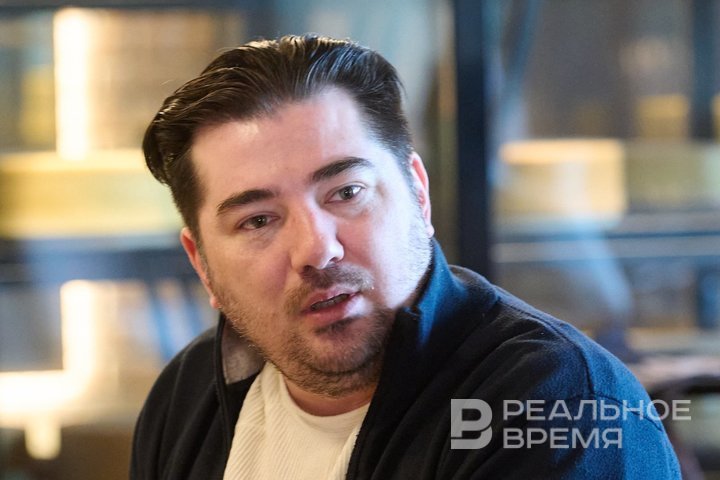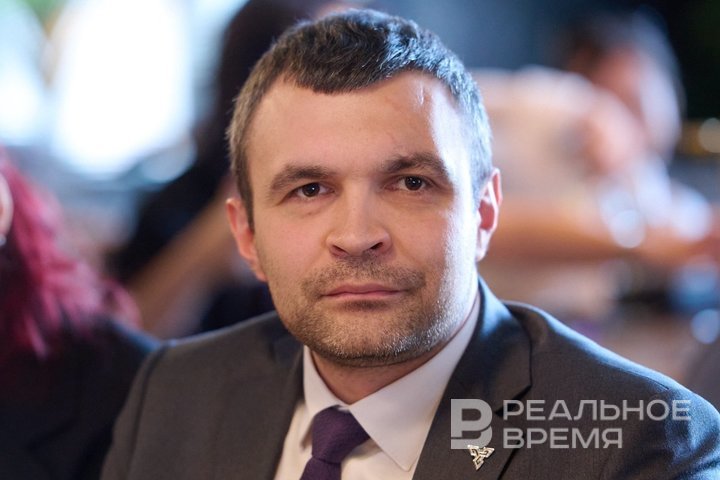‘To pay or to resist’: how restaurateurs and stylists should deal with dishonest clients
Analysis of a high-profile case of consumer extremism in the restaurant industry and a 'not red enough' hair colour

At the business brunch hosted by Realnoe Vremya, guests gathered at the Kazan restaurant V Desyatku to discuss consumer extremism. The first part of the report focuses on how restaurateurs, beauty business owners, and service industry professionals can protect themselves. Should one negotiate with blackmailers, how can a reputation be defended after an attack by slanderers, who will stand up for the restaurant business, and whether it is necessary to sign a contract for hair colouring — all this in our feature.
What really happened at P.Love: the business owner’s version
Kazan still remembers the recent high-profile incident involving the temporary closure of the P.Love restaurant on Zorge Street. Nurislam Sharifullin, the owner of the chain, explained that this case is a clear-cut example of consumer terrorism — and, according to him, it could happen again at any moment in any establishment in the city.
The restaurateur recounts how the events unfolded: on 20 March, two young women came to the restaurant and had dinner. As later stated in their report, that same evening they also enjoyed some pre-packaged pastries bought from a chain store. The next day, they ate fast food at a market. And on 24 March, they were admitted to an infectious diseases hospital with salmonellosis, from which they were discharged on 28 March with a medical certificate confirming food poisoning.
“They called us and demanded ‘compensation’ — 10,000 roubles each. But we do not accept that they fell ill because of our food. That’s not how this works. They ate the most popular salad in a restaurant with 250 seats, and at the time, we were at full capacity. If the salad had been the issue, there would have been a mass poisoning! Still, we offered the girls a 3,000-rouble voucher — just to express sympathy and ensure their experience with us wasn’t entirely negative. But they insisted: ‘Give us the voucher and 10,000 each, or we’ll file a complaint against you.’ We replied, ‘We don’t negotiate with terrorists.’ They filed a report with the prosecutor’s office.”

That’s not how this works. They ate the most popular salad in a restaurant with 250 seats, and at the time, we were at full capacity. If the salad had been the issue, there would have been a mass poisoning!
The notice from the prosecutor’s office was forwarded to the food hygiene division of Rospotrebnadzor. The restaurateur believes that when a notice comes from the prosecutor’s office, inspections tend to be especially thorough and strict — to ensure there are no questions as to whether the oversight official actually looked for violations. At the Zorge Street restaurant, swabs were taken, the kitchen was inspected, and minor, non-critical violations were found: expired bread meant for staff use, unlabelled garlic, and E. coli. (It’s worth noting that E. coli is a bacterium naturally present in a healthy human body and, in principle, found anywhere humans are active.) The establishment was closed until the violations were rectified.
All the requirements were met within two days, the issues were resolved, and video and photo evidence was presented in court. However, the judge suggested the materials could have been photoshopped and ruled to close P.Love for 30 days. A petition to reopen the restaurant followed, along with a new inspection by Rospotrebnadzor — this time with positive results — a new court hearing, and finally, justice was restored. In total, the establishment lost a week of operations.
“When Rospotrebnadzor published a statement about our closure, the republic’s media and bloggers were overjoyed. Everyone started pushing the story. And how does this information travel from one outlet to another? ‘Mass food poisoning at P.Love.’ ‘P.Love shut down due to salmonella.’ At the restaurant that was closed, revenue collapsed fourfold. Company-wide, we saw a one-third drop in revenue. And I thought: ‘It would have been cheaper and easier to just give those girls the 10,000 each.’ But we never imagined it would come to this. We have two sanitary doctors on staff, we don’t allow violations, and Rospotrebnadzor regularly inspects us because all our restaurants operate under one legal entity — and as a major player, we’re always under close scrutiny. In 10 years, we’ve never had any issues! But here, we were powerless,” explains Nurislam Sharifullin.

“All this information should be handed over to the police”
And although the subtext is clear, it is difficult to directly accuse such a customer of blackmail. This is why restaurateurs often choose to pay — simply to avoid the hassle of an intensified inspection. Especially since the amount in question is usually up to 50,000 rubles — not enough money to justify the risk, particularly in light of the case already described by Nurislam Sharifullin.
“They don’t just write to one restaurant. They send messages to several. Someone is bound to pay,” says the restaurateur.
But Tatiana Shishkina, the deputy head of the Consumer Rights Protection Department at Rospotrebnadzor's Office in Tatarstan, disagrees:
“I believe that in this case, consumer extremism is indeed at play, and all this information should be handed over to the police. Because there is an underlying implication: they are demanding money from you. If they claim they spent money on medicine, then they must provide supporting documents to prove that they purchased the medication specifically for the purpose prescribed by a doctor to treat food poisoning. Their medical records should include both a confirmed diagnosis and the doctor’s prescription. To go to court, they need the results of bacteriological laboratory tests. The diagnosis must be confirmed, not just a preliminary one made by a paramedic under uncertain circumstances. And Rospotrebnadzor doesn’t act 'just in case.' They operate within the framework of the decisions made for them, ensuring that all sanitary and epidemiological norms are followed. Because it must be proven that there is a causal relationship, that the poisoning truly resulted from food consumed at your establishment.”

Their medical records should include both a confirmed diagnosis and the doctor’s prescription. To go to court, they need the results of bacteriological laboratory tests. The diagnosis must be confirmed, not just a preliminary one made by a paramedic under uncertain circumstances.
Timur Urazaev, a partner at the law firm A2K Legal, also advises against giving in to guests seeking to profit.
“If you constantly pay off such individuals, it will lead to even more extremism. You need to counteract the reputational damage with your own advertising campaign. 'There was a complaint, but it was not substantiated.' The system of publicly addressing complaints works: you describe the situation, give an interview, and keep doing this time after time. Eventually, after a while, the attempts will stop,” suggests the lawyer.
However, few are willing to take risks: in many cases, even a temporary closure during an investigation can deal a critical blow to a business's finances. As a result, dishonest guests continue to pressure restaurateurs. But returning to the case of Nurislam Sharifullin and the absence of salmonella in his restaurant, the lawyer doubts that government authorities should have insisted on a temporary closure of the establishment. After all, there was no salmonella.
Timur Urazaev explains what restaurateurs should do and how to protect their honor and business reputation in cases of unjust accusations once the process has already begun:
“All these stories can only be addressed on a case-by-case basis. You need qualified staff, from managers to lawyers, who should use scripts for typical situations. If the restaurateur is at fault, we advise resolving the issue out of court. If there is no fault and you decide to stand your ground — defend yourself in court, and let your PR team handle the case in the same public space where you were defamed. Otherwise, it will be like ‘the spoons were found, but the aftertaste remains.’ A counter PR campaign should always be launched! And by the way, according to the law, you can demand retractions from the media if their statements directly accused you of something that was later proven untrue.”

If you constantly pay off such individuals, it will lead to even more extremism. You need to counteract the reputational damage with your own advertising campaign
“Your red is not red enough”
Another sector that often suffers from clients attempting to receive services for free is the beauty industry. Clients who refuse to pay for the services provided often argue that they didn’t like the result, even though in many cases it’s clear that the primary goal was not to pay. And since most small salons do not have contracts for such services, and all agreements are verbal, business owners have no legal grounds for dispute.
The owner of the colorist studio Good Job Hair, Yulia Yutyaeva, observes:
“After hearing various stories from colleagues, I realised one thing: we can’t prevent these situations, because what matters here is the emotional connection between the client and the stylist. It’s something intangible that can’t be written into a contract — the tone level, hair length. We can’t measure each strand with a ruler before and after a haircut. ‘Your red is not red enough’ — this is a real objection we once received. How do we address it when differences in color perception might simply be rooted in the individual’s vision?”
“A person comes, knowing exactly what they want, but has no intention of paying for it”
The most interesting thing is that Tatiana Shishkina notes that Rospotrebnadzor almost never receives complaints from beauty salon clients. Does this mean a trend is developing here as well?
“Yes, they don’t turn to them. The complaints and demands are directed at the stylists and salon management,” confirms Yulia Yutyaeva. “They clearly understand the owner's fear of all these inspections. And their intention to intimidate works. Because we are small, we are not powerful, and personally, I’ve never had a lawyer.”
Regina Pashagina, the head of the commercial real estate department at Alterra Agency, disagrees: it is possible to protect oneself by signing a contract that clearly outlines what techniques will be used, which materials are involved, and what results are expected. References to the desired outcome are attached, and everything that will take place is specified in the document. Both parties sign it with the client’s statement, “I have no complaints in the case of [specific issue],” and it can then be presented in court. Timur Urazaev, as a lawyer, also advises: it’s better to have at least some document than none at all.
“Actually, in such cases, there can only be one criterion: harm or danger to health. If harm to health is not proven, and we’re dealing with 'slightly lighter' or 'slightly darker,' nothing can be proven in court. This is a subjective assessment," explains the lawyer.
How to deal with “terrorists” in the beauty industry? Yulia Yutyaeva and those present around her made three conclusions. First, it’s important to try to document every step of the stylist, if possible. Because someone who intends to get a service for free may reconsider their plan upon seeing an official contract. Second, the owner of the beauty salon set a strict condition for her stylists: to conduct a detailed consultation before starting any work on the client’s hair. They should not rush and should take the time to clearly understand the client’s desires, explain the expected results, and determine her preferences.
“My conclusion is following: you will never completely eliminate such cases. But you can reduce the number of instances of consumer extremism in the beauty sector,” says Yulia.
To be continued